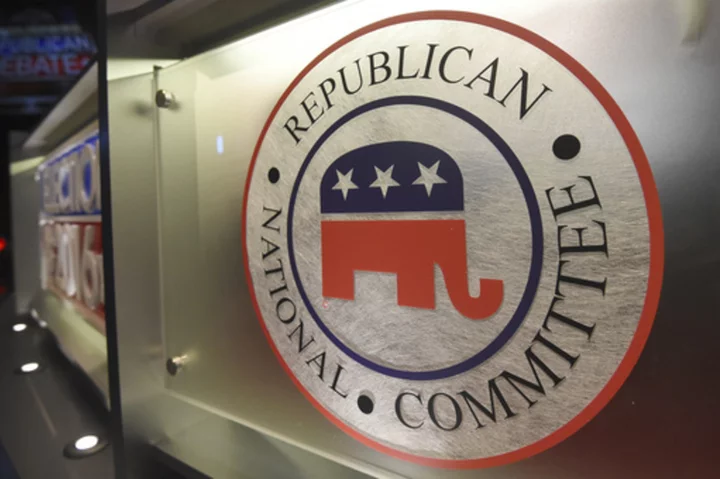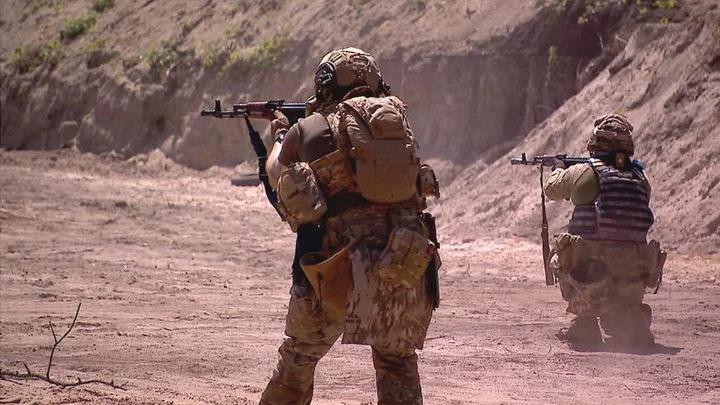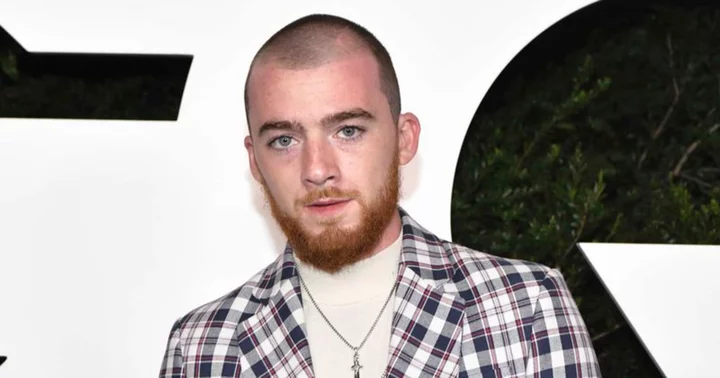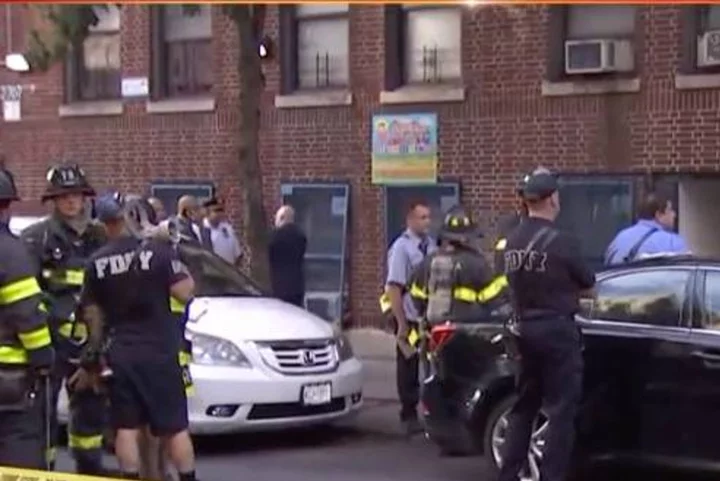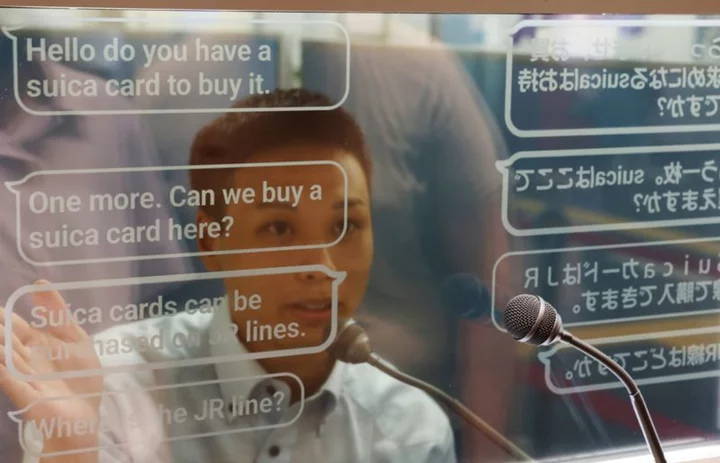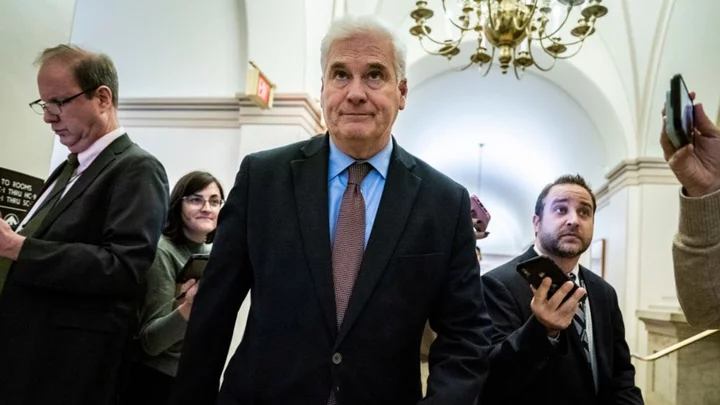NEW YORK (AP) — The Republican National Committee's rules for next year's nominating contest and convention were released this week without addressing a question the GOP could well face next summer: Can the party's delegates vote for a different candidate if the presumptive nominee is convicted of a felony?
Former President Donald Trump is under four criminal indictments that will proceed through the GOP primary season, an overlap of legal and political calendars with no precedent in American politics. Fifteen states and American Samoa hold their GOP primaries on March 5, known as Super Tuesday, which is also the day after his first trial is scheduled to begin in Washington on charges that he unlawfully sought to overturn the 2020 election.
Trump is dominating the Republican field and may secure much of the support he needs by Super Tuesday, by which time almost half of delegates who select the nominee at the GOP convention will have been awarded. Even if he were to be convicted in Washington or another trial, top party leaders and many voters have indicated they would stand by Trump anyway. And Trump and his allies are pushing to dismiss and delay the trials and have worked with state parties to craft rules favorable to him.
The RNC rules don’t include any provisions specific to the unprecedented scenario unfolding.
Bound delegates must vote for a particular presidential candidate at the convention based on the results of the primary or caucus in their state. As in past years, every state party must bind its delegates to vote for their assigned candidates during at least the first round of voting at the national convention, with limited exceptions for a small number of delegates. A candidate wins the nomination if they clinch a majority, which is 1,215 delegates.
At next year’s convention, which starts July 15 in Milwaukee, there will be opportunities to tweak the rules when they are adopted or to suspend them, which can require two-thirds of delegates to approve on a vote.
“It’s a parliamentary body,” said Benjamin Ginsberg, a Republican election lawyer. “It can always work its will if it wants to one way or another.”
Such last-minute maneuvers are difficult to organize and there are few current signs that delegates might look for another option even with Trump’s criminal cases looming.
“They’re all going to be chosen at contests in which people are voting for Trump and I think they’re unlikely, if he wins the primary, to change up because of a court case,” Ginsberg said.
The Trump campaign issued a preemptive warning anyway.
“Any attempt by any swamp rat, by any Washington, D.C., swamp rat, to mess with the rules will be summarily crushed by those of us that know how to run conventions,” said Trump advisor Chris LaCivita, who was a senior consultant in charge of rules and floor operations for the RNC in 2016, a year when some Trump opponents considered challenging him at the convention.
One contingency section of longstanding party rules would allow the RNC to free a state from the rules prior to the convention if “compliance is impossible” and “the Republican National Committee determines that granting such waiver is in the best interests of the Republican Party.”
Such a waiver would require action by the Republican National Committee's executive committee, which is made up of 29 members, including RNC chair Ronna McDaniel.
The RNC declined to comment on the possibility of the rules being suspended in the case of the nominee being in jail but instead pointed to recent interviews in which McDaniel was asked if Trump should be the nominee if he’s convicted of a crime, and she said the party would support the nominee that the voters choose.
“I know this is newsworthy, but, as party chair, I’m going to support who the voters choose. And, yes, if they choose Donald Trump -- the voters are looking at this, and they think there is a two-tiered system of justice. They don’t believe a lot of the things that are coming out in this,” McDaniel said in a Nov. 12 interview on CNN’s State of the Union. “They’re making these decisions. And you’re seeing that reflected in the polls.”
Republicans award delegates to candidates based on their performance in state presidential caucuses and primary elections, which kick off in January and run through June.
Delegates can be unbound by state parties if their assigned candidate drops out, something Trump seems unlikely to do as he has made his criminal cases the central focus of his campaign and declared the charges to be politically motivated.
Unlike in 2016, when the complex delegate process tripped up Trump's then-novice team, he has a more experienced campaign team for his third White House bid, including LaCivita, and his political aides have been working for years to craft rules in the delegate battles that are favorable for a frontrunner, as he is poised to be.
And unlike in 2016, when a large faction within the party resisted Trump's candidacy, the Republican Party has transformed under Trump. He has more loyalists throughout the state and national parties, making it even more unlikely there will be a repeat of the late-stage, failed effort at the 2016 convention when some activists loyal to Texas Sen. Ted Cruz tried to make last-minute changes to free delegates.
___
Associated Press writer Alanna Durkin Richer in Boston contributed to this report.

